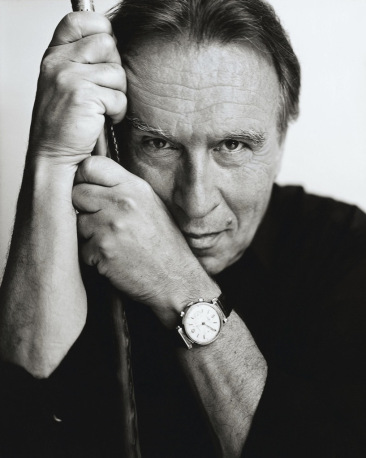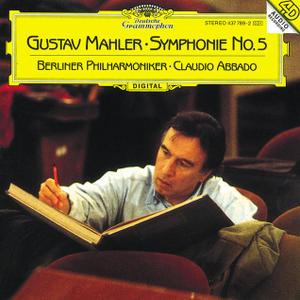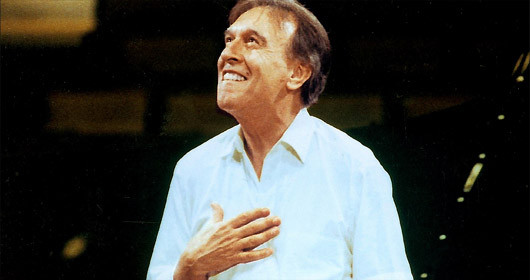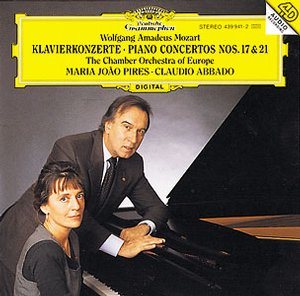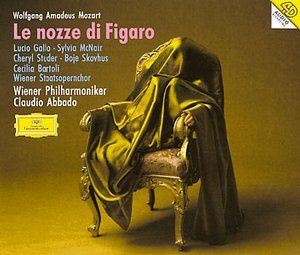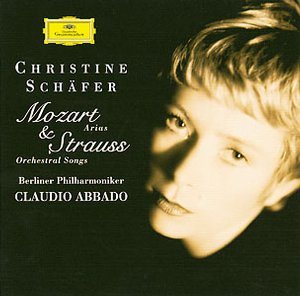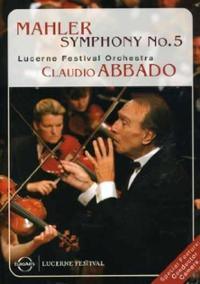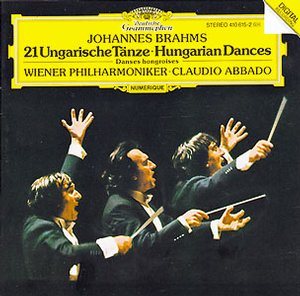Composer, conductor and pianist Dinuk Wijeratne, who moved to Toronto last year from Halifax, had his musical sensibility awakened by Claudio Abbado, who died on Jan. 20.
- OPEN LETTER | Christina Petrowska Quilico Remembers Pierre Boulez - January 7, 2016
- Op-ed: The Compositional Voice and the Need to Please - September 4, 2014
- Onomatopoeia: The Thin Edge New Music Collective Sounds Off - May 10, 2014
On his blog, Wijeratne posted a beautifully personal tribute to this great conductor, as well as a guide to further listening and appreciation.
Here it is:
Remembering Abbado
by wijeratneworks
“Playing under Claudio Abbado was like seeing a master taming a wild force. It’s like when a magician tames a tiger: you don’t understand how, but you know it’s happening. – Stanley Dodds, Berlin Philharmonic musician & board member (the Economist, 2014)
CLAUDIO ABBADO – my favourite conductor, and one of my favourite musicians – has died at the age of 80.
Only last June, I wrote in tribute as he entered his ninth decade with several highly anticipated performances ahead of him. But now, shortly after hearing the news of his passing, I’m sitting in an airport lounge, struggling to find words to express the feeling of losing one of my earliest musical heroes.
For me, Abbado’s art represents a rare balance of mind and heart – his conducting was informed by scrupulous scholarship, yet had the ability to change water into fire at a moment’s notice, igniting the concert experience when it really counted.
His distinctive ‘sound’ was characterized by a leanness and lucidity (and often a lightness) that is very much to my taste but admittedly not to everyone’s.
I also learned whatever I could from stories of his style of leadership, to which I would compare to the ‘democratic’ directorial style of Robert Altman. Of Altman Tommy Lee Jones once observed: “He was very good at letting actors think that they had more control than they actually did.” One might have said the same for Abbado, who brought the interactive ideology of chamber-music into the orchestral rehearsal room; a style of rehearsing in which the pervasive, underlying message was one of: “listen, listen to each other,” as opposed to a more front-led “just follow me, and it will all be ok.”
Dodds also explains: “Over the years I became accustomed to a feeling of great freedom whilst playing with him, music seeming to develop naturally under his guidance. Off the podium Claudio came across as shy, gentle, softly spoken, a little mysterious and quite enigmatic. In performance, he became a conduit between the forces assembled on stage and the emotional narrative that resides in the music, completely transparent and without an interfering ego. [He was a] genuinely modest human being, but when it came to music he showed his incredibly strong will. He knew exactly what he wanted, and there was no arguing with that.” (the Strad, 2014)
Opinions of conductors are often sharply divided, especially amongst musicians. We all think we know exactly how Bach should sound, or Beethoven or Debussy should be interpreted, but the arguments seem rather futile when one considers that all great maestri must have reached such rarified status for possessing at least something special to offer.
This is my modest, personal reminiscence of Abbado’s inspiration. My views are subjective for sure, but I hope to encourage the reader, or the many young musicians I work with today, to look more closely at the recorded legacy of a truly great artist. He was also a champion of younger talent. We have much to learn from musicians and educators like Claudio Abbado.
I encountered Abbado’s work from a distance, and rarely first-hand.
Growing up in Dubai in the ’80s and ’90s, I didn’t have access to live music-making of the kind that people enjoy here in the West. To compensate, I would satisfy my voracious musical appetite by spending all of my pocket money on CDs and monthly issues of BBC Music magazine.
And so it was that my first introduction to the music of Mahler was in the form of a recording: an excerpt from the Scherzo of the Resurrection Symphony. Albeit brief, it was long enough to blow me sideways, as the saying goes.
I rushed out to the CD shop, eager to purchase my first full-length Mahler recording. With no recommendations at hand, I suspect I chose this particular album purely for its sun-yellow label (the Deutsche Grammophon logo) and for the intriguing photo of an introspective man, deeply engrossed in some musical manuscript:
Listening to the recording, it goes without saying that I had the typical awestruck reaction to Mahler’s 5th Symphony of any classical music aficionado…. but there was something else present in my experience.
Despite being a young teen, ignorant of this music, I still sensed something powerful behind Mahler’s personality, behind the sounds of the expert musicians playing his music: I felt aware of a powerfully unifying, interpretive force that was pushing and pulling the music in the most subtle, natural way.
Realizing that this must be the ‘silent’ personality of the conductor, I immediately cemented my reactions to the name ‘Claudio Abbado’. The link had been made and I was a fan from that day on, without really knowing it.
I went on to study music exclusively, at the Royal Northern College of Music in the UK, and it was a wonderful environment in which my friends and I would talk endlessly about music. Abbado’s name came up often, and I learned a lot (first-hand) about the regard that many great European musicians had for him. I was starting a little jazz library of my own too, but Abbado was the most represented artist in my ever-expanding collection of classical albums.
Unusually, it was in the United States that I was to attend an Abbado performance for the first (and only) time.
The circumstances were quite precious: immediately after the 9/11 attacks, visiting artists were cancelling their US dates in droves, for reasons of safety and heightened security. The Berlin Philharmonic tour of October 2001 was definitely hanging in the balance, slated to open Carnegie Hall’s 111th season. New York City was desperate for some high-octane music-making, and so the orchestra and Abbado came.
In what proved to be an historic gesture, they inscribed this message in all the NY concert programs:
“We have come to America at a time of great anguish and sorrow. We come as a reaffirmation of our common humanity, which is so deeply expressed in the music of these concerts. John F. Kennedy once said at a critical moment in Berlin’s history, ‘Ich bin ein Berliner.’ At this terrible moment, we are the ones who say with you, ‘We are all New Yorkers.’ ”
As you can imagine, the atmosphere at these events was electrifying.
I attended the rehearsals. I fell in love with the playing of the Berlin Phil. I was already an ardent Abbado fan, but until this time I only enjoyed his work through his recordings.
From the student seating of Carnegie Hall, seconds away from watching and hearing him conduct in real-time, I quietly challenged him in my mind to live up to the high standard I had come to expect from his many recordings. He surpassed them absolutely – I was hooked from the first downbeat to the very last chords of a searing performance of Beethoven’s 7th Symphony that drove the audience into a wild frenzy.
The conducting, to my mind at least, was the most elegant, sophisticated, balletic upper-body display of gesture I’d ever seen; the visual coefficient of an orchestral sonority of transparency and translucency. It was, after all, the Abbado sound.
RECOMMENDED LISTENING/VIEWING
One of history’s most recorded conductors, Abbado’s staggeringly large discography extends into the hundreds (I’m not kidding), including complete traversals of the symphonies of Beethoven, Brahms, Schubert, and Mahler.
Understandably, it’s difficult to know where to start, so here are simply some of my personal favourites:
MOZART – Piano Concertos 17 & 21 w/Pires & the Chamber Orchestra of Europe.
This could be the disc I take away to my desert island. Despite the wonderful instrumental playing here, I was always drawn to how Mozart, my favourite composer, sounded in the hands of my favourite conductor. In a word: sublime. Abbado’s Mozart changed drastically over the years leading up to this recording, however. I always respected the fact that he never rested on his laurels.
MOZART – The Marriage of Figaro, w/Bartoli et al & the Vienna Philharmonic.
While his Don Giovanni may not have hit the mark, this is more supreme Mozart from Abbado, and a recording I suspect not many people know about. Bartoli too, is unforgettable.
MOZART & STRAUSS – Arias w/Schäfer, Pires & the BPO.
A sumptuously performed and well-chosen assortment of arias and Lieder. ‘Morgen’ is particularly exquisite.
MAHLER – Symphony no. 5 w/the Lucerne Festival Orchestra.
Abbado and his super-band in a live performance of Mahler 5 that is superbly well-paced. The famous Adagietto is a staggering display of his skill and vocabulary of gesture. This DVD is a dream for conducting enthusiasts in that its menu offers a multi-angle ‘conductor camera’ feature, as do the DVDs of the BPO Beethoven cycle in Rome.
BRAHMS – the complete Hungarian Dances w/the Vienna Philharmonic.
Not only does this have a killer cover photo, these are killer renditions of these fabulous miniatures.
BERG – Altenburg Lieder, Lyric Suite, Lulu Suite w/Banse & the BPO.
This particular recording may not be in the catalogue anymore, but you can find most of the tracks in new compilations, and used copies here. Intellect balances emotion perfectly in these meticulously detailed and nuanced interpretations.
+++
Medici.tv is currently streaming its Abbado content for free. Check it out here.
For more information about Dinuk Wijeratne, click here.
- OPEN LETTER | Christina Petrowska Quilico Remembers Pierre Boulez - January 7, 2016
- Op-ed: The Compositional Voice and the Need to Please - September 4, 2014
- Onomatopoeia: The Thin Edge New Music Collective Sounds Off - May 10, 2014

